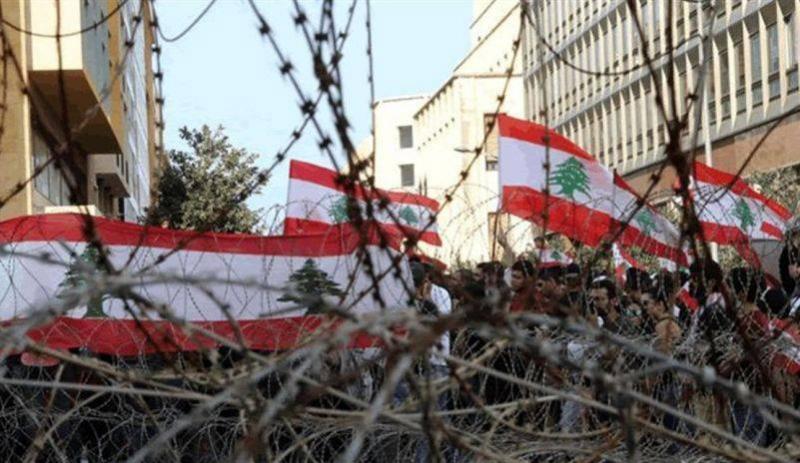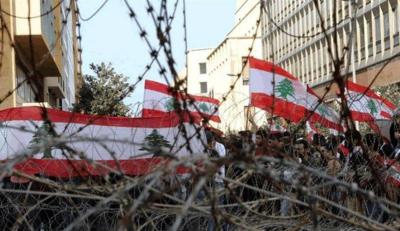The Lebanese political landscape is confused in searching for the determining factor that could transition Lebanon from a state of turmoil and chaos to a minimum level of stability necessary for launching an economic recovery plan. This begins with the demarcation of maritime borders with Israel, which, if agreed upon, would provide a dose of hope for the Lebanese and may encourage potential investors in the country to prepare for the possibility of a new development phase, as it opens the door for the commencement of exploration and extraction operations in the coming years, which could help revive its struggling economy.
At times, the success of the demarcation is linked to the presidential elections in Lebanon between September 1 and October 31, while at other times, it is tied to the early elections in Israel scheduled for next November. There are also calls for expediting and ensuring the success of the American mediation concerning the midterm elections in the United States. Thus, it has become accurate to say that Lebanon is trapped between three elections, with its fate hanging in the balance.
The conflicting estimates regarding each of the three points are equal in the balance of various readings.
Some believe that it would be better for the countries concerned with the maritime demarcation between Lebanon and Israel to resolve the dispute over Line 23 and the section that crosses the Qana field before the end of President Michel Aoun's term, as the presidency is the fundamental reference in negotiations regarding demarcation, given that the government is resigned. There is a possibility of a presidential vacuum that could extend for months, which would hinder the completion of negotiations at a time when Washington is eager to enable Israel to begin extracting gas from the Karish field, especially since it has become linked to a memorandum of understanding with the European Union to export its gas to its countries as compensation for part of the Russian gas.
Conversely, there are those who argue that one reason for the delay in agreeing on the demarcation is to postpone this achievement until a new president is elected and to provide momentum for the upcoming presidential term and its relationship with Western countries. Additionally, it is expected that the approval of the required reforms by the International Monetary Fund in the Parliament would precede the completion of the demarcation, so that the new president has a roadmap for implementing these reforms. This would be followed by the demarcation process, allowing the contracted companies to begin exploration in Block 9 and tender the remaining blocks according to the new public procurement law that establishes transparency regulations.
Regarding the early elections in Israel, despite some leaks suggesting that an agreement on the final formula being worked on by American mediator Amos Hochstein (which stipulates a straight line for Line 23 with written American guarantees regarding Lebanon's revenues from the Qana field) could be signed soon, voices have risen in Israeli circles discussing the difficulty of making the required concessions from Yair Lapid's government just months before the Knesset elections. Optimists who hope to finalize the demarcation in weeks are banking on Washington's pressure on Tel Aviv, believing the gains outweigh the losses significantly.
Others who rule out Israeli approval argue that Benjamin Netanyahu, the main rival to Lapid, Naftali Bennett, and other ruling coalition parties, would benefit from making these concessions in his election campaign against the current coalition that ousted him from government, which could allow him to reap results that might bring him back to power. Therefore, Israeli leaders prefer to delay any agreement until after the elections to avoid accusations against the current ruling coalition of making concessions under Hezbollah's threats.
Regarding the upcoming American electoral entitlement, observers attribute the Biden administration's urgency to agree on the demarcation of borders between Lebanon and Israel and to enable the latter to extract gas to a strategic plan aimed at making Middle Eastern gas an acceptable alternative to Russian gas, albeit it currently does not match Russian quantities. This also includes hopes of compensating for the remaining part of Iran, aiming to facilitate the resumption of negotiations on the nuclear agreement in Vienna. Successful implementation of this strategy will help reduce oil and gas prices, thereby lowering inflation confronting the global economy, particularly the American economy, due to the energy crisis, which in turn improves the Democratic Party's popularity in the upcoming midterm elections and diminishes its losses against the Republican Party.
In contrast to these calculations, some circles do not rule out Iran seeking to exploit the Democrats' weakness in the midterm elections, thus preventing any improvement in Biden's popularity, becoming more rigid in Vienna negotiations in an attempt to achieve its demands in the nuclear agreement after the U.S. elections when the Biden administration could be more vulnerable. Consequently, it would be in its interest to contribute to obstructing gas extraction from Karish. Hezbollah's threats have led to discussions regarding the idea of postponing gas extraction from Karish, which counters Washington's calculations.




